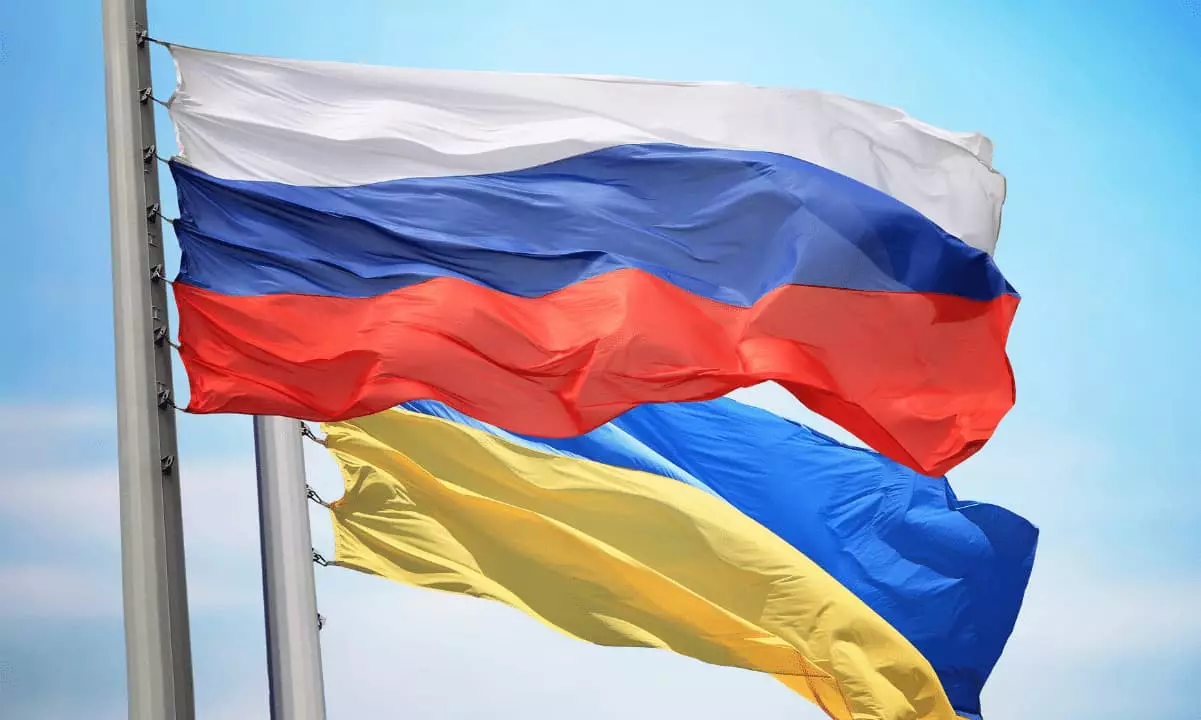In recent months, Ukraine and Russia have risen to prominence in the global cryptocurrency landscape, evidenced by their rankings as sixth and seventh, respectively, in the latest Global Crypto Adoption Index. Such significant standings are particularly noteworthy given the socio-political tensions and economic sanctions affecting Russia. A report by Chainalysis, released in collaboration with CryptoPotato, indicates that Russia’s position improved markedly by six places compared to the previous year. This advancement occurs in a context where the ongoing conflict has led to increased scrutiny and punitive financial measures from Western nations so that crypto becomes a vital tool for financial maneuvering.
Eastern Europe has become a focal point for crypto inflows, with Russia witnessing a staggering $182.44 billion influx, while Ukraine garnered $106.1 billion. This shift illustrates a pivotal transition towards decentralized finance (DeFi) mechanisms, particularly decentralized exchanges (DEXes). The data shows a remarkable trend, where approximately $149 billion was funneled into DEX platforms across Eastern Europe, with significant contributions from both Ukraine and Russia. Ukraine’s DEX inflows surged over 160% to reach $34.9 billion, while Russia saw an even more impressive increase of 173%, accumulating $58.4 billion. This remarkable growth can be attributed to the flexibility and anonymity that DEX platforms offer, aligning well with the current geopolitical climate.
Analyzing the transaction patterns within the crypto domain reveals two distinct but interconnected trends. In Ukraine, institutional transactions exceeding $10 million exhibited a whopping 361.49% increase, underscoring the confidence that larger investors place in the crypto market as a hedge against inflation and currency devaluation. Meanwhile, retail activity is also on the rise, evidenced by substantial growth figures of 82.29% for larger retail transactions and 91.99% for smaller ones. This duality of rising institutional and grassroots activity indicates a deepening reliance on crypto not merely as an investment vehicle but as an everyday transactional medium.
The Role of Local Crypto Services Amid Sanctions
In Russia, local crypto services have gained traction, particularly in light of increasing sanctions targeting traditional banking systems. While the traffic to centralized exchanges has plateaued, the emergence of no-know-your-customer (KYC) exchanges in the Russian-speaking market has become a critical alternative. This trend implies a pivot towards platforms that enable users to convert fiat into digital currencies with fewer restrictions. The influx into these services reflects the adaptive strategies that individuals and businesses in Russia are employing to navigate the complexities of financial limitations imposed by the international community.
The experiences of Ukraine and Russia illustrate the adaptability and resilience of the crypto ecosystem, especially in conflict-affected regions. As both countries continue to adjust to their respective socio-economic realities, the evolution of crypto adoption will likely serve as a case study for how digital assets can provide a lifeline in times of instability. The confluence of institutional investment, grassroots retail growth, and innovative local services presents a promising yet complex landscape for cryptocurrency in Eastern Europe. Moving forward, understanding these trends will be crucial for anyone seeking to navigate the rapidly shifting terrain of global finance amidst political turmoil.









